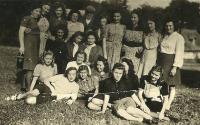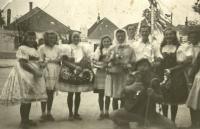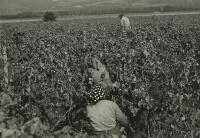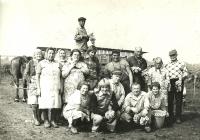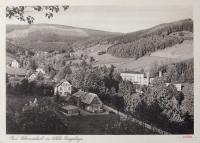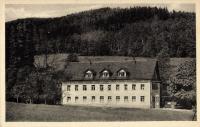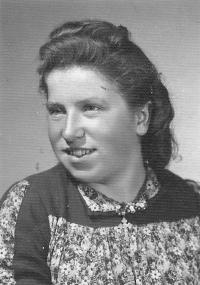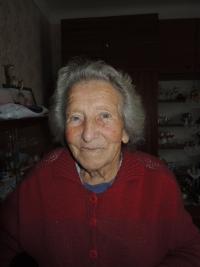President Hácha gave away the people who were born in that year; it was actually ten months donated to Hitler
Gabriela Binková was born January 23, 1924 in Velké Němčice in the Hustopeče region. As a young woman she spent the first years of the war in her native village, where she lived together with her parents, two sisters and one brother. The situation changed at the end of 1943 when people began openly speaking about the plan to send young people who were born in 1924 to Germany as conscripted labour. Gabriela’s family was initially trying to help her avoid going to Germany: her father found her a job in a different place, and they were urging her to marry Vladimír, a man whom she had started dating a short time ago. Their wedding eventually did not take place and it became evident that neither her job was a sufficient excuse for German authorities. In March 1944 Gabriela Binková thus boarded a train at the railway station in Brno, which carried her to the small town Bad Schwarzbach in the territory of present-day Poland, where she spent the following ten months in a factory which produced aircraft parts. It could be said that she was lucky, because the working conditions in Bad Schwarzbach were not too strict, and she herself comments that they “didn’t have it bad there.” Having worked for the ten months she returned to Velké Němčice, where she continued to live after the war ended. Her parents decided to move to the border region in search of a better living. They obtained a house in Dolní Dunajovice, as well as fields and vineyards, and they decided to start farming there. After some time they sold their house in Němčice, and Gabriela thus moved to their new farm in Dolní Dunajovice. For several years she was helping them at the family farm and afterwards she became employed by the local State Farm where she kept working until her retirement.

